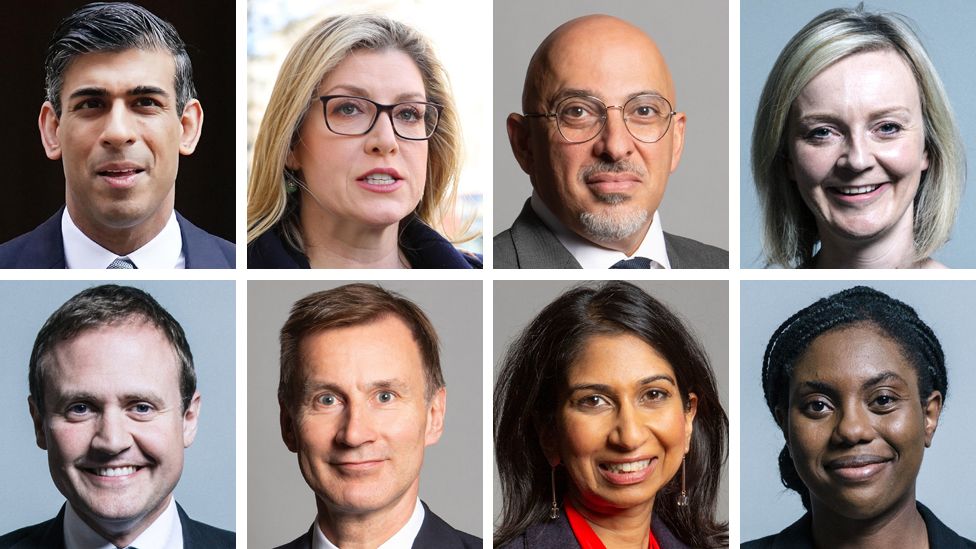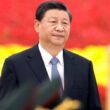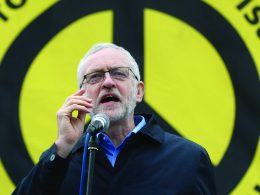By Tom Costello, Socialist Alternative (our sister organisation in England, Wales and Scotland)
No amount of culture wars or running off to Kiev was able to save Boris Johnson’s skin. After months of back-and-forth battles, Johnson finally took to the podium outside Number 10, with a tiny rump of right-wing loyalists, and begrudgingly resigned as Tory leader last Thursday.
And so the battle for his successor begins. So far, his ousting and the competition have been framed largely in terms of ‘honesty’, ‘character’ and ‘integrity’.
Johnson put the corruption, entitlement and arrogance of the capitalist class on show more than any other Tory leader has managed to do in recent memory. But he also wasn’t its cause. A system based on the pursuit of profit over the needs of the working-class majority will be bound to produce creatures like Johnson and his ilk.
The dirty revelations of defending sexual abusers and corrupt politicians in parliament, spending £200,000 on flat refurbishments and partying while families lost loved ones to the pandemic were not the true reason why these became such scandals for Johnson. The reason was that he was unable to hide them from public view.
But the real reasons for this crisis of the Tory government go far deeper than this. In essence, it is the perfect storm of crises facing feeble and rotting British capitalism – from an economy headed for the worst crisis of any major Western power, to the disintegration of the UK and beyond – that caused Johnson’s throne to crumble.
The result is a Parliamentary Tory Party so divided that many MPs are not not satisfied even with Boris as caretaker PM. Despite calls for Dominic Raab to temporarily take over, it is clear that the focus has now gone onto finding Johnson’s replacement as quickly as possible, speeding up the process to whittle down the race to two contenders as early as next week.
Now the battle will be on to find a ‘cleaner figure’ that will be able to re-sanitise the Tory brand. The establishment needs a “cleaner” and “safer” ’ pair of hands to govern in the interests of the super-rich to take on the brewing ‘Summer of Discontent’ kicked off by the railway strikes.
Johnson: Gone but not out
Of course, a problem the party now confronts is that Johnson is ‘gone’, but not truly out just yet. Johnson was absolutely determined to cling to any hint of power by his fingertips. After a period of desperate Trump-style talk about his ‘mandate from 14 million voters’, he has finally climbed down to demanding a ‘caretaker’ role under September.
Of course, the idea of Johnson as a caretaker of anything will inspire fear. This is a man who will no doubt attempt to use his remaining weeks in office to steamroll through some of the most reactionary parts of his platform. As such, Grant Shapps’ new strikebreaking bill, legalising the use of agency workers to break strike action has passed, with little to no fight at all from Starmer’s Labour.
The pledges to ramp up military spending and the horrendous, racist policy of deportations to Rwanda will be sped up by the Ministry of Defence and Home Office, such is the desperation of Johnson to cement a lasting legacy as ‘the man who deported refugees, stood up to foreign powers and hurt the unions’.
Tory divisions break out
As of now there are 6 candidates in the race, but this will be whittled down rapidly. Clearly, the crowded field reveals the growing disunity and factionalism among the Tories, along with desperate careerism. A raft of no-chance candidates have thrown themselves in as the people best positioned to be the “anti-Rishi” choice – albeit with the recent withdrawals of Hunt, Zahawi, Javid and Patel.
In a race designed to find a clean-slate alternative to Johnson, it says something that the bookies’ favorite is Sunak – a former investment banker with a net worth of £169m, whose wife Akshata Murthy, born into a family of billionaires, was revealed only three months ago to have “non-dom” status, allowing for ‘legal’ tax avoidance to the tune of £20m. And he is far from alone in this. Recent reports have been unearthed that five currently-sitting ministers – including temporary Chancellor Nadim Zahawi – are being investigated by HMRC over irregularities in their taxes
Sunak has played up on questions of personal honesty and integrity, with a slogan of “Let’s restore trust”. Yet he has more or less defended the record of Johnson. When quizzed on his former boss, Sunak said “Was [Johnson] flawed? Yes, but so are all of us”. This is obviously a huge understatement. But after all, in every crisis and scandal facing Johnson’s government, Sunak was either implicated or directly involved. Not a single corner of the Tory Party can be washed clean!
Tax cut mania
Behind the divisions in the Tory party are a myriad of problems facing the capitalist class in Britain. The economy has consistently failed to grow and is now on the verge of another recession. The Bank of England predicts the UK economy to contract by 0.25% over the next year. Retail Price Inflation, currently sat at 11.7%, is predicted to continue rising well into 2023 and most likely beyond.
Capitalism in Britain is plagued by multiple interlinked crises, at home and abroad. From war, climate crisis and worldwide shortages and bottlenecks, at home the Tories face growing tensions over the very existence of the UK, with the growing tensions in Northern Ireland and demands for independence in Scotland. Brexit, far from ‘oven-ready’, is entering into a new deadlock over trade. The petty personal and political power struggles at the top of the Tories will continue to add fuel to the fire of this world in turmoil.
What way out will the Tories attempt to find? The most desperately unhinged and ideological of them are crawling out the woodwork to put their stamp on the debates around the race. Jacob Rees-Mogg, almost a parody of himself at this stage, labelled Sunak a “socialist”. Sajid Javid’s failed campaign was marked by his ‘ambitious’ plan for a cut in corporation tax to 15%, which would imply an austerity package worth at least £49.5bn. The now-eliminated Zahawi has made an absolutely chilling proposal for a 20% cut in all government departments – including the NHS.
Some of the most intensely pro-’free market’ Tories are on the offensive, massaging their nostalgia for the Thatcher era and seeking to reassert Thatcherite neoliberal economic dogma in a period which has seen this creed thrown into existential crisis. Most importantly, they want to see this inflationary crisis leading to a sustained attack on the rights and living standards of the working class through a new round of disciplinary austerity.
Although this has become the mission of the ‘anti-Rishi’ Tories, Sunak himself has also clearly given an indication that he would not intend to continue the record-high pandemic public spending. As he put it in his campaign launch: “Our country faces huge challenges. The most serious for a generation… Do we confront this moment with honesty, seriousness and determination, or do we tell ourselves comforting fairytales that might make us feel better in the moment, but will leave our children worse off?” Although not as overt as his rivals, the message is clear: working class people will have to pay, and anything else will be a “comforting fairytale”.
Right-wing ‘war on wokeness’
The leadership race has been utterly reactionary from start to finish. It is quickly degenerating into a competition to see who can most effectively wage a right-wing ‘culture war on wokeness’. The battle is on to see who can most effectively whip up hysteria around trans rights, climate change, migrants, refugees and “foreign courts” among the thin but vocal layer of the population concentrated in the Tory membership.
Suella Braverman, one of the main candidates of the hard-right, when laying out her policies on ITV News, laid out a programme of destroying “woke rubbish”, pleading to “get back to a country where describing a man and a woman in terms of biology does not mean you are going to lose your job”. Attacking a so-called “rights culture which has spun out of control”, Braverman’s chief competition has been from Kemi Badenoch, a favourite among the reactionary Tory membership, who has centered on ripping up net-zero climate targets.
The net ‘contribution’ of Johnson’s leadership has been to amplify the Trumpification of the Tory Party. Ideas once seen as on the fringe right have been mainstreamed. And this political change will outlast the career of Johnson himself, just as it has continued unabated in the US following Trump’s removal from power.
As such, the so-called ‘moderate’ voices of the race have been forced to tag right. Penny Mordaunt, a growing favourite to challenge Sunak apparently with a record of being ‘socially liberal’, has taken on the transphobic mantle with her slogan that a woman is an “adult human female” (a slogan used by anti-trans campaigners).
Even Jeremy Hunt and Tom Tugendhat, hailed by the liberal press as the ‘reasonable, respectable’ centrist voices are by no means immune. Both indicated their continued support for the Rwanda deportations. When the Home Office introduced the absolutely inhumane and racist practise of fiting GPS tags to refugees (many of whom will have escaped persecution and torture at home), not a single one of the hopefuls raised a finger in protest.
This is why it will be crucial in the next period to meet this right-wing culture war with a class war against the aims of the Tories to ‘divide and rule’ with their reactionary poison. This means the workers movement unapologetically taking up the struggle against racism, transphobia, climate destruction and all forms of oppression.
Taking on the unions
Johnson’s victory in 2019, aside from his guarantee to resolve the Brexit crisis, was fundamentally about promising a break with the legacy of the previous decade of Tory rule – of a race to the bottom, of scaling down, underfunding and privatising services. Behind the popularity of the slogan of ‘levelling up’ in some Northern working class towns was the idea that this would represent a break from conventional Tory policies.
As much as they tailor their ‘low-spend, low-tax’ Thatcherite messaging to their own right-wing base, the Tories will come face to face with the fact that neoliberal policies are more unpopular than they have ever been among working class people. Renewed attacks on state spending to the detriment of workers’ living standards is bound to trigger workers’ action, with ballots already being pursued across the public sector.
The reason for this is simple: we cannot survive another round of attacks. Just under half of those surveyed by the Office for National Statistics said last month that they are preparing to eat less as the cost of living crisis bites. Reports have emerged of supermarkets putting security tags on basic food items to prevent shoplifting. Strikes for wages are now struggles for basic survival.
The Tories clearly fear that more than just isolated strikes over wages, this Summer and Autumn and beyond has the potential to give birth to a much wider generalised struggle of working class people which can put the Tories on the backfoot. The three-day action of the RMT last month has begun this process already, gathering mass working-class support in the face of relentless media hostility.
They will attempt to paint any new round of industrial action as being the driving force in pushing up prices. So the argument goes, the more workers demand in wages, the more prices go up. So the answer is supposedly to crush the power of workers and depress wages to stabilise capitalism. But this does not answer why prices have gone up while wages have gone down!
The real reason for inflation is not workers, but the endless speculation and profiteering of the capitalist class and their system. Only through a sustained struggle by the working class movement to defend our living standards can we fight the cost of living crisis.
How can this be built?
Certainly not by relying on Starmer’s New Labour. No doubt, many workers will be understandably looking towards Labour as the sole means of getting the Tories out electorally right now. But Starmer’s whole approach has been to make Labour, successfully, a second vehicle for the interests of the capitalist class and not for working class people.
Starmer has responded to the crisis in the Tories by calling on the MPs to ditch Johnson, or else he will introduce a vote of no confidence. While this may appeal to many who want to see the back of Johnson ASAP, more than anything, this is about demonstrating that he is a safe, reliable figure for the capitalists to turn to as an alternative to an increasingly fragmented Tory Party. His recent ban on frontbench Labour MPs from joining the RMT pickets cannot be explained any other way.
So where will the answer come from? Which force in society can fight not only to drive out every last Tory from power, but to also fight for fundamental change? Events in Sri Lanka, with the mass movement to drive out President Gotabaya, as well as the various mass struggles against hunger and poverty, and for democratic rights across the world make clear that it is an organised mass movement of working class struggle that will provide that answer.
The unions, when coordinated and united in their action, have the potential to not only fight for jobs, pay and conditions, but to finally go on the offensive and turn the tide of events in our favour after decades of being on the defensive. This is particularly possible while the Tories are on their knees and waiting to be knocked over.
Postal workers and BT staff in the CWU union, RMT rail workers being joined by ASLEF drivers and TSSA members, British Airways staff in Unite, as well as teachers and junior doctors are now gearing up for action over pay. This does not cover the full variety of local disputes brewing over the Summer and beyond. It only scratches the surface of what is possible if working people everywhere draw lessons that only fighting will deliver the goods.
To win for workers everywhere, this wave of action must be coordinated to the maximum degree. Industrial action across different unions should be planned to cause maximum disruption. But also urgently needed is a programme for escalating action – including joint pickets and common city and town-centre local demonstrations in every corner of the country. These could then raise powerful demands for inflation smashing pay rises, tied to the cost of living, with a struggle for a £15 an hour minimum wage and full reversal of all cuts to benefits and services.
The TUC should begin to make those first preparation steps immediately, as well as Unite, the RMT and all unions who have shown willingness to fight. But we cannot simply wait for our officials and the TUC to prepare this action for us. Conferences and assemblies of union resistance should be organised in every town and city, to draw together strikers and all those rallying in solidarity to democratically prepare the most effective joint action. This could place pressure on our leaders and send out a signal for workers everywhere – both in the unions but also outside – to gear up and get into action.
A new political voice for workers
Action like this will inevitably pose the question, how can we also politically organise ourselves, as workers fighting for our interests? Increasingly, leaders like Sharon Graham have talked of giving no ‘political blank cheques’ to Starmer’s Labour. But how can we build on that by providing a reliable political voice that can represent the struggles of working class people, as well as all struggles against oppression and climate crisis?
Socialist Alternative calls for a new left party of struggle. We need a new party based around struggle in the workplaces, on the picket lines and on the streets. But to do this requires not just the maximum possible level of struggle, but also a strong socialist movement to ensure the necessary programme and strategy for change. Socialist Alternative aims to build this movement. Behind the driving down of workers conditions, as well as the escalating climate crisis is the endless drive for profit that the capitalist system is based around.
This is why we need a strong voice that not only organises with workers, but ties our struggles to the fight for a new type of society – a socialist society based around nationalisation and democratic public ownership of the key sectors of the economy and finance sector, as well as genuine internationalism and solidarity between workers all over the world.
If you agree, get in contact with Socialist Alternative today! We are part of International Socialist Alternative – a global organisation drawing together revolutionary socialists in over 30 countries around the world.












